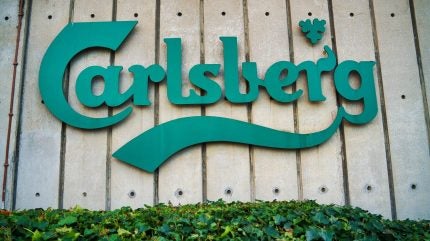
Carlsberg has narrowed its profit growth guidance for the first quarter after seeing a strong post-Covid recovery in China and better-than-expected performance in Europe.
Speaking to Just Drinks on Thursday (27 April), Carlsberg CEO Cees ‘t Hart said that of the group’s three “major risks”; Covid recovery in China, the war in Ukraine and high inflation, the receding threat of Covid in Asia had the biggest impact on its decision to narrow the guidance.
“One out of these three risks has disappeared, because Covid is not a topic or an issue in China anymore,” t’Hart said. “We are beyond the Chinese New Year and, having grown 4% in China in Q1, we can say that we don’t have a risk.”
In the three-months to 31 March, Carlsberg delivered organic revenue growth of 14.2%, with all three of its reporting regions showing double digit growth. Western Europe grew ahead of analyst’s consensus, increasing by 11.5% compared to expectations of 6%, while Asia revenues rose by 12.4%.
In central and eastern Europe, Carlsberg’s revenues grew by nearly 30%, on the back of strong volume growth in Ukraine from the re-opening of its breweries, and price increases taken to offset inflation costs.
The better-than-expected results led the Tuborg brewer to narrow its forecasted -5% to 5% for full-year operating profit growth to -2% to 5%.
Asked what would give the group cause to narrow its guidance further, the Carlsberg CEO said: “Peace in Ukraine would immediately have an impact because part of the risk we see is that there could be a missile that hits one of our factories, or if one of our glass suppliers could not produce for us and then suddenly we would have problems.”
‘t Hart said further uncertainties remained in the form of the as-of-yet unknown impact of price increases taken by the Somersby brand owner in parts of Europe.
“We have not seen yet the consequences of significant high, significantly higher prices in the market with regards to the human reaction,” he said. “In most of the countries, our increased prices only hit the shelves at the end of February, beginning of March…It is early days, really too early to come to any conclusion.”
‘t Hart did add, however, that the Super Bock brewer was already seeing “more economic purchasing” in some markets, citing alcohol-free beer volume declines in Poland and weak on-premise sales in the UK.
Carlsberg CEO hails Brooklyn Brewery performance
Elsewhere, ‘t Hart hailed the performance of Brooklyn Brewery, the craft beer brand in which it owns the rights to brew and distribute in Europe and Asia. Volumes of the brand were up 51% compared to the corresponding period, led by launches in the UK and Poland.
He said: “We put a lot of effort behind this [launch] and I feel it is one of the brands that could really help us grow further in the premium segment.”
Speaking to Just Drinks last year, t’Hart said he was pleased the Danish headquartered group did not “acquire all kinds of nitty-gritty craft breweries” at the height of the segment’s popularity.
Justifying Carlsberg’s decision to invest behind the Brooklyn brand, however, t’ Hart said: “That [a small craft brewery] was not how we saw Brooklyn from the beginning. In those days we were thinking about [it as] international craft and we positioned it like that, and now we think of it more as one of our premium brands.
“We have new advertising that is very appealing right at the heart of consumers, and connecting the brand with its origins. We have had a very good customer and consumer reaction with the launch of Brooklyn Pilsner in the UK especially.”
In North America, Carlsberg is looking to grow its footprint, having late last year struck a deal to buy Waterloo Brewing, an Ontario-based craft brewer it already had a distribution agreement with.
Asked if the deal – which completed in Q1 2023 – could be a springboard to future acquisitions in the market, ‘t Hart said: “In general, we have a vision is about on acquisitions that are interesting for us. As you know we have a strong balance sheet. Our pain point is that, in 2016 when the market was consolidating, Carlsberg did not have the money [to participate]. Now we have the money but it is a consolidated market so it is difficult to find a proper target.”
In the three months to 31 March, Carlsberg’s revenues came in at DKr 16.4bn ($2.4bn), beating analysts’ expectations of DKr 15.9bn. Volumes grew by 2.1%, with growth in Asia (+4.9%) and central and eastern Europe (+0.9%) offsetting declines in western Europe (-1%).
The company’s revenue per hectolitre sold globally increased by 12%, fuelled by price increases and consumers continuing to trade up as they returned to the on-premise following Covid-19 lockdowns.



